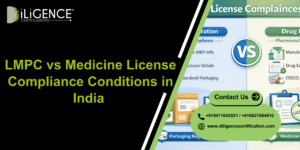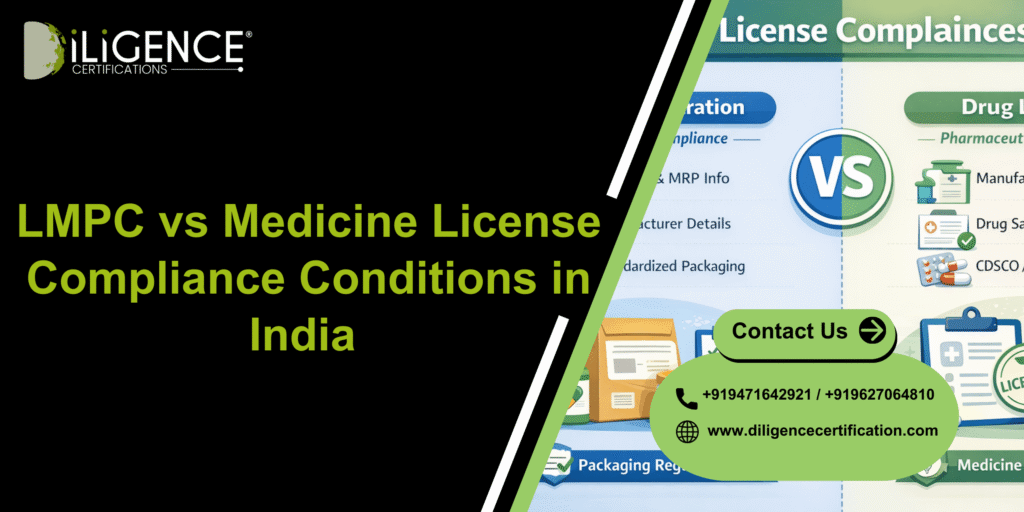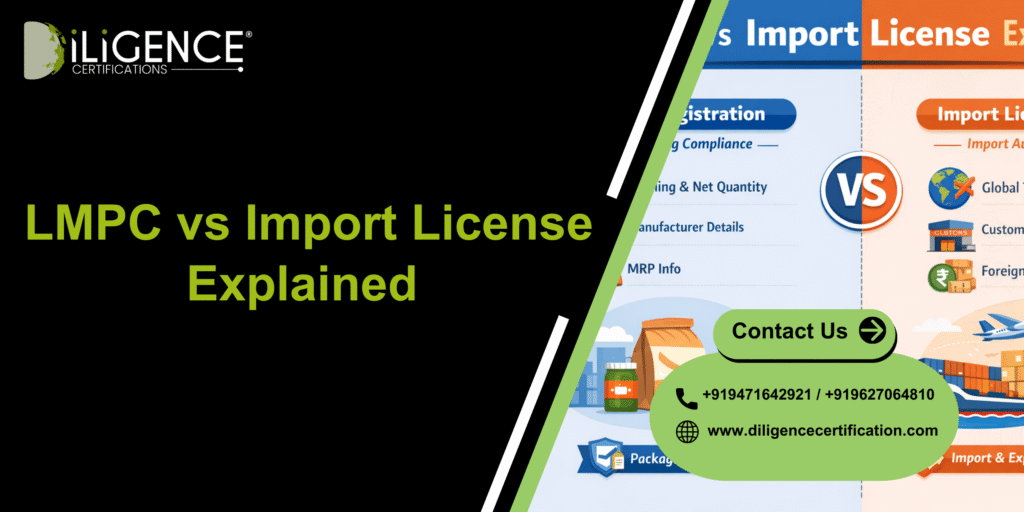- Learn how to get BIS Standards for Cattle Feed with Diligence Certifications.
- Explore IS 2052:2009 requirements, benefits, and the BIS Standards for cattle feed.
- Ensure quality, safety, and market trust through ISI Mark for cattle feeds.
- Allows safe additives like vitamins, minerals, antioxidants, and approved preservatives.
- Ensures quality, safety, and nutritional value of cattle feed to improve animal health, milk yield, and productivity.
Introduction
Before they say the sun is up, every day millions of dairy farmers in India start their mornings feeding the animals, cleaning sheds, and readying themselves for another set of milk collections. The hard work alone does not keep the farmer alive; the hard-working animals must do so with them. One more forgotten agent behind every liter of milk would be another factor in producing: cattle feed.
Cattle feed isn’t just food—it’s the foundation of animal health, productivity, and milk yield. But what if that foundation is flawed?
Across rural and urban dairies, unregulated and substandard compounded feeds have quietly crept into the market. They look good, they’re cheaper, and they promise high performance. But many of them lack proper labeling, don’t follow nutritional standards
This silent quality gap has serious consequences:
- If the feed is low in nutrition, it interferes with immunity and digestion.
- Toxin-ridden feed can cause diseases, a drop in fertility, or death.
- Nutritional inconsistencies in labeling cause overfeeding or underfeeding of critical minerals.
That’s why the Bureau of Indian Standards (BIS) created a dedicated standard for cattle feed—IS 2052:2009—to ensure that what goes into a cow’s body is safe, balanced, and traceable. It’s not just a document—it’s a safeguard for farmers, consumers, and the dairy economy at large.
Yet, many manufacturers, feed processors, and even importers remain unaware of how vital and mandatory the BIS standards are for cattle feed.
This blog by Diligence Certifications explores everything you need to know—from what IS 2052:2009 entails, to how you can obtain the ISI mark to the process, costs, documents, eligibility, and long-term business benefits.
Whether you’re a feed producer, dairy cooperative, or policy stakeholder, understanding and complying with BIS standards is no longer optional—it’s a necessary step toward quality assurance and market credibility in 2025 and beyond.
What is BIS Certification for Cattle Feed?

an approval granted by the Bureau of Indian Standards under the IS 2052:2009 specification. It verifies that the compounded cattle feed meets essential nutritional, safety, and quality standards. The ISI Mark on cattle feed bags proves to farmers, distributors, and authorities that your product is safe, regulated, and fit for animal consumption.
Key points:
- Mandated under Indian law for compounded cattle feed
- Proves compliance with BIS standards for cattle feed
- Improves market credibility and customer trust
- Acts as a safeguard for animal health
Why is BIS Certification for Cattle Feed Important?
- Consumer Confidence: Farmers today look for safe, nutritionally balanced feed. BIS reassures them.
- Legal Compliance: Failing to comply with IS 2052:2009 could subject the accused to penalties or business bans.
- Brand Reputation: ISI Mark cattle feed is a quality stamp that elevates your standing in the market.
- Animal Welfare: BIS-tested powdered feed complies with the absence of any harmful additives that harm the health of cattle.
What Is IS 2052:2009?
IS 2052:2009 specifies requirements for compounded cattle feed such as ingredients sources, nutritional profiling, labeling, packaging, and microbiological standards. The aim of which is to ensure the consistency of quality by different manufacturers and brands.

BIS ISI Mark (IS 2052: 2009) for Cattle Feeds in India
The BIS ISI mark on cattle feed is very enticing as it acts as an insurmountable barrier. The ISI mark of cattle feed means to the customer the implicit assurance that it has undergone rigorous testing procedures and meets stringent national standards. The registered BIS cattle feed has to meet those requirements as regards safety, quality, and nutritional points before its presentation in the market. The licensing for granting the use of the ISI mark on products transforms the doubt into absolute trust and protects the livestock.
What are BIS Standards for Cattle Feed?
BIS certificate for cattle feed under IS 2052:2009 lays down requirements for:
- Moisture content
- Crude protein
- Fiber levels
- Mineral and vitamin supplements
- Permissible levels of aflatoxins and contaminants
It ensures the feed supports growth, reproduction, and milk yield in cattle without risking toxicity or malnutrition. The ISI Mark for cattle feed cannot be granted unless your product meets these precise quality norms.
BIS Certification for Cattle Feed: Key Benefits
- Market Acceptance: cooperatives to dairies and government supply contracts, all prefer certified feeds.
- Higher Profit Margins: Certified feed usually commands a premium price.
- Lower Legal Risks: Avoids fines and recalls, and other penalties.
- Animal Health: Proper nutrition means fewer diseases and higher productivity among herds.
- Consumer Trust: Strengthens your brand in the competitive market.
BIS Certification Variants for Cattle Feed Products
BIS may grant different certifications depending on the product:
- Compounded cattle feed (as per IS 2052:2009)
- Cattle feed supplements (vitamin/mineral concentrates)
- Pellet feeds
- Mash feeds
- Specialized formulations
- Diligence Certifications can help you determine which category your feed belongs to.
Documents Required for BIS Certification for Cattle Feed
To get BIS Certification Feed, you typically need:
- Factory registration certificate
- List of machinery and equipment
- Laboratory test reports
- Product formulation details
- Quality control records
- Factory layout and process flow
- ISO certificates (if any)
- Authorized signatory documents
Diligence Certifications helps you compile and validate these documents efficiently.
Government Cost Report
| Fee Component | Approximate Cost (INR) |
| Lab Testing per Feed | Depends on your product |
| BIS Application | One-time application submission fee for registration with BIS. |
| Report Upload Fee | Charge for uploading and processing test reports on the BIS portal. |
| Annual Surveillance | Recurring yearly fee for BIS inspections and sample checks to maintain certification. |
| Renewal (incl. testing) | Fee for renewing the BIS license, which includes fresh testing and document verification. |
The above are indicative government fees and may vary depending on product type, testing requirements, and certification type or license validity.
For an exact fee estimate for your product, connect with Diligence Certification – our experts will guide you step by step.
Step-by-Step Process of BIS Certification for Cattle Feed
- Application Filing: Submit your application to the Bureau of Indian Standards.
- Document Scrutiny: BIS verifies all your paperwork.
- Product Testing: Samples go to BIS-approved labs for IS 2052:2009 testing.
- Factory Audit: Inspectors visit your premises to assess production capabilities.
- Grant of License: If everything meets the cattle feed requirements, you get the ISI Mark for the cattle feed license.

What are the Testing Requirements for BIS certification for Cattle feed?
To get this certification, you need to run tests on ingredients, check their chemical makeup, and measure vitamin D3, E, and aflatoxin B1 levels. Also, compound feed bags must have labels with all the information the standards call for. On top of that, the maker has to get a bis license from the Bureau of Indian Standards.
BIS Standards for Cattle Feed for Validity & Eligibility
- Eligibility: Any Indian or foreign cattle feed manufacturer selling in India
- Validity: The license is generally valid for one year and renewable upon compliance.
- Renewal involves retesting and a review of documentation.
Using Diligence Certifications ensures you never miss a renewal date.
Conclusion
In today’s fast-paced animal economy, with attention to every litre of milk and every good calf produced, cattle feed is at the real risk of being cut. Hence, these types of standards of BIS for cattle feed, particularly IS 2052:2009, were created to guard the animal’s health, farmer’s livelihood, and the very dignity of dairy in India.
Getting this ISI Mark Certification and placing that on your product is more than just fulfilling a regulatory provision- it’s an endorsement that your brand stands for quality, transparency, and farmer trust. It is a stamp that your product is subject to audit, awards of contracts, and free display.
With Diligence Certifications, you do not have to fight the bis process alone. Testing, documentation, and factory audits—we keep you certified, confident, and compliant.
Frequently Asked Questions
Is BIS required by small feed mills?
Yes, any commercial manufacturer, be it big or small, needs to get the BIS certification before marketing their products.
What is ISI mark on cattle feed packaging?
It signifies BIS certification, assuring the feed complies with IS 2052:2009 specifications for quality and safety.
What is IS 2052:2009 in BIS certification?
It is the Indian standard of compounded cattle feed laying down requirements of safety, hygiene, nutritionWhat is the cost of BIS certification for cattle feed?, and labelling.
What is the cost of BIS certification for cattle feed?
The total cost from testing, fees, to audits varies from ₹40,000 to ₹60,000 depending on product category.
Is BIS mandatory for mineral feed mixes?
Yes, premixes and mineral supplements for cattle fall under BIS and need certification also.
For how long is the BIS license for cattle feed valid?
The BIS license is 2 years initially and may be renewed for a further 5 years on re-compliance.
Can I sell cattle feed without ISI mark?
No, selling compounded cattle feed without BIS certification and ISI mark is against Indian law.
Is BIS certification obligatory for cattle feed in India?
Yes, BIS certification pursuant to IS 2052:2009 is obligatory for Indian commercial manufacturers of cattle feed.
How do I apply for BIS certification for cattle feed?
Apply through the BIS portal, send product samples for testing, and undergo a factory inspection to become certified.
How much will the charge be for BIS cattle feed certification?
The complete cost, including audit, charges, and testing, will approximately go somewhere in the region of ₹40,000 to ₹60,000, depending on the product type.








 BIS Certification
BIS Certification
 CDSCO
CDSCO
 CPCB
CPCB
 LMPC
LMPC
 WPC Approval
WPC Approval
 Global Approvals
Global Approvals
 TEC
TEC
 ARAI
ARAI
 BEE
BEE
 ISO Certification
ISO Certification
 Drone Registration
Drone Registration
 NOC For Steel
NOC For Steel



















 Business Registration
Business Registration















 Legal Services
Legal Services
 Trademark Registration
Trademark Registration
 Copyright Registration
Copyright Registration
 Patent Registration
Patent Registration















































